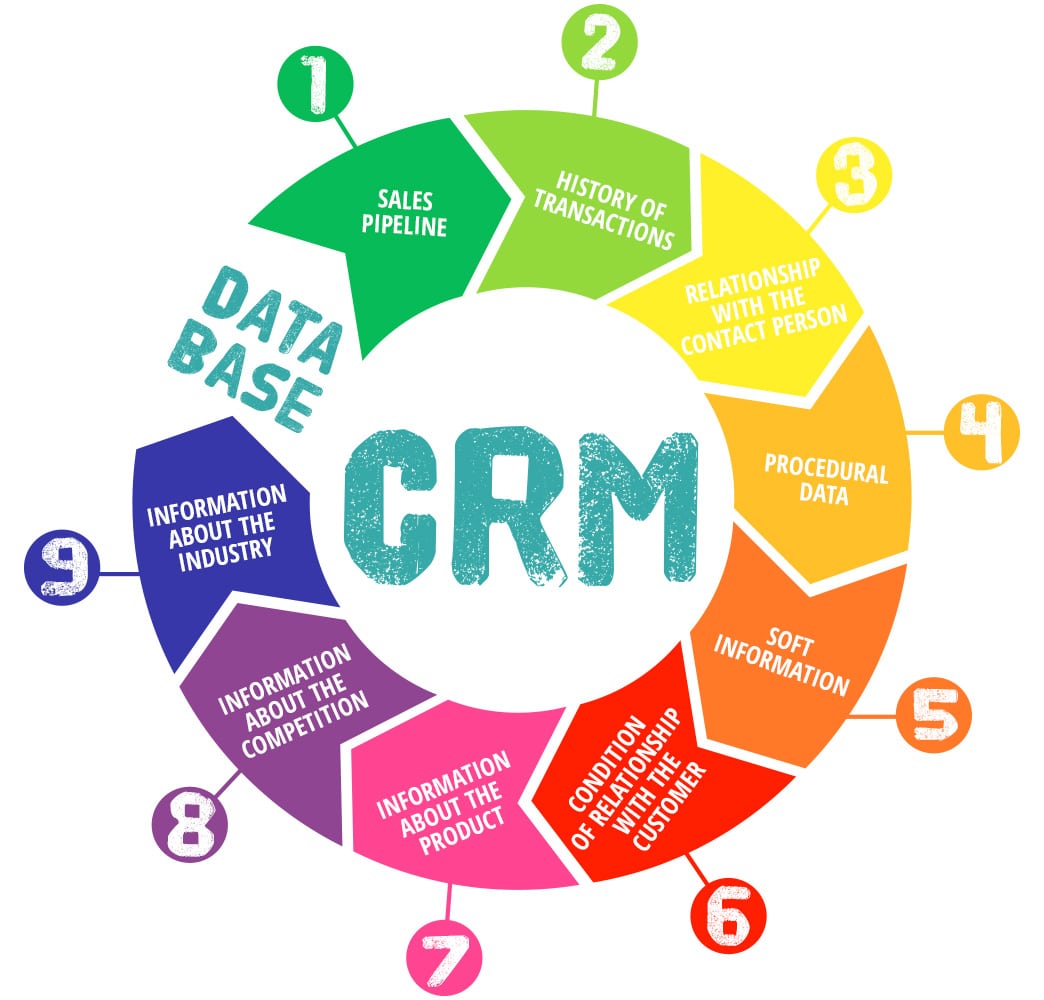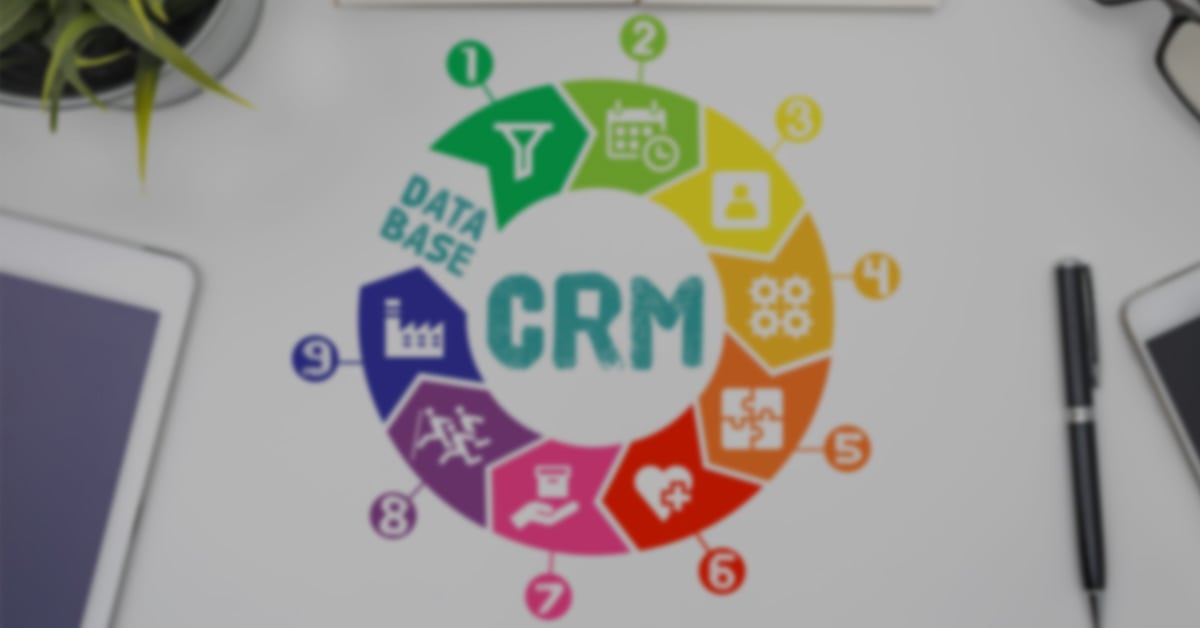24 Oct 9 areas of CRM data base
Usually, when we explain what is CRM, we limit ourselves to resolving the abbreviation and simply saying: Customer Relationship Management. This is a comprehensive, yet understandable statement that usually suffices as a definition. We use it both during phone calls with the customers and while publishing on our blog.
It is only at a further stage of cooperation that we delve into the topic and reveal the wider range of possibilities offered by our systems. Because we are providing Open Source solutions, there are no restrictions in this field. When a particular investor asks eVolpe whether something is possible our answer will most likely be YES!
It seems that a valuable contribution to this blog will be to provide our readers with a broad spectrum of information that can be acquired through CRM software. Not to limit ourselves to managing customer relationships only, let’s examine nine areas of expertise that are differentiated within a single CRM database!
1# Sales Pipeline – CRM Data Base
Almost every CRM provider offers this kind of visualization. Sales pipeline is a graphical representation of the ongoing sales activities that allow you to estimate your upcoming revenue and plan the resources needed to succeed. The sales funnel, as it is also called at times, is a concept for a comprehensive overview of business processes. It makes it easy and convenient to forecast how many transactions we should complete to reach a specific goal. What is important is not only the number of open opportunities, but also the level of their advancement. By using this tool correctly, we are able to react appropriately to potential complications, downtime or sudden rush in the sales department.
Advantages of the sales pipeline:
- sales opportunities monitoring and facilitation of decision-making;
- improvement of the effectiveness of the financial plan;
- analysis of business goals by comparison of former assumptions and current results;
- streamlining the work of managers and team leaders, organizing their daily tasks;
- simple, intuitive User Experience.
2# History of Transactions
This area of knowledge is crucial for new members of the sales team. A newbie in the sales department needs to recognize the market and adapt to the conditions of the new industry. On the basis of information collected about past transactions, they can learn how to deal with the customer that they have had no chance to talk to yet.
Insight on the company’s sales history can also be used by managers. Observing the paths of previous conduct may lead to certain conclusions, for example about paying more attention to the specific stage of the selling process.
Knowledge of past transactions will also be useful when dealing with returning customers. It is extremely valuable to place our current activities in the context of previous cooperation. This is not just about discounts for so-called. loyal clients but primarily about building a good Customer Experience. Invaluable in this case may be the knowledge about the specific needs of a particular organization or even awareness of people with whom the company had to do.
3# Relationship with the Contact Person
The previous conclusion leads us to the next area of knowledge stored in the CRM system. This is the history of telephone conversations, archived E-mails, notes, etc. Before contacting a customer, it is important to familiarize yourself with this type of information in order to address the current situation and previous arrangements. This will help to build a professional image of the seller and create an atmosphere of mutual understanding. Carefully introduced information can save us a lot of time and stress when our client requires individual treatment.
4# Procedural Data
A valuable source of knowledge are those areas of CRM software where information about procedures, decision-making processes, buying stages, and possible bidding conditions are stored. It gives us the advantage of predicting customer’s behavior and accordingly adjusting our message. This way we will also be able to direct the offer exclusively to those individuals who could be interested. Such approach will also ensure highly professional Customer Experience.
5# Soft Information
At times, a purchase is rather emotional than a rational decision. Especially in case of the B2C model. Therefore, it is very important to remember the personal preferences of the decision maker. An essential element of building a relationship with a client can be the part when the conversation goes a little side track. Referring to customer’s interests, linking their private information (of course, with a sense of context) or finally using the client’s language – are just some of the tricks used by clever sales representatives. Being an adviser, more than a seller, may be easier if you use CRM. Customer’s social profiles, references about the hobbies or annotations regarding preferred contact form are just some examples of a well-rounded personal record.
6# Condition of the Relationship with the Customer
The CRM system allows us to track also the less pleasant aspect of interacting with our clients. It happens sometimes in business, that someone files a complaint, is not responding appropriately to late payments or something like that. Those cases are also a part of the reality in the sales department. Therefore, a CRM system allows you to keep track of those situations and quickly respond when they happen.
7# Information about the Product
CRM is equally useful in terms of maintaining relationships with customers and keeping track of your internal processes. It allows gathering data about products and services that you offer. Thanks to the appropriate module, you can store the information about your offer and use it for example while explaining the variety of available options to your client. It is not necessary to memorize multi-page product specifications if after a few mouse clicks you can access the whole catalog of goods and services. The software allows you to even track product’s availability on the base of quantity filed on the invoices. Moreover, there is a possibility to integrate your CRM system with ERP software to get a wider view.
8# Information about the Competition
Obviously, we do not live in isolation from other vendors. Having that in mind, in order to respond properly to the competition, it is worthwhile to collect information about them within the CRM database. During conversations with the customers, it might become crucial to be able to correlate our offer with other solutions on the market. We should also be able to recognize our own advantages, so we could use them as a case if the customer brings up another product. We should definitely avoid situations where we find out about novelties directly from the client. It is, in fact, a sign of our times that the customer is very well prepared to negotiate, knows the market and contacts many suppliers at the same time.
9# Information about the Industry
Our 9th bullet point sounds surprisingly similar to the previous one. This time, however, we mean more procedural aspect of the coexistence of companies on the market and within a particular industry. As you know, some areas of the economy are governed by very specific rules. In many cases, they are also legally regulated. In addition to the knowledge of the offer of individual companies, it is worth possessing a database of regulations, current trends or characteristics of the competitive environment. This way we will protect ourselves against the negative effects of any control and keep up with the latest technology and industry trends. Not without reason, it is said that information is the most valuable currency of the world.





